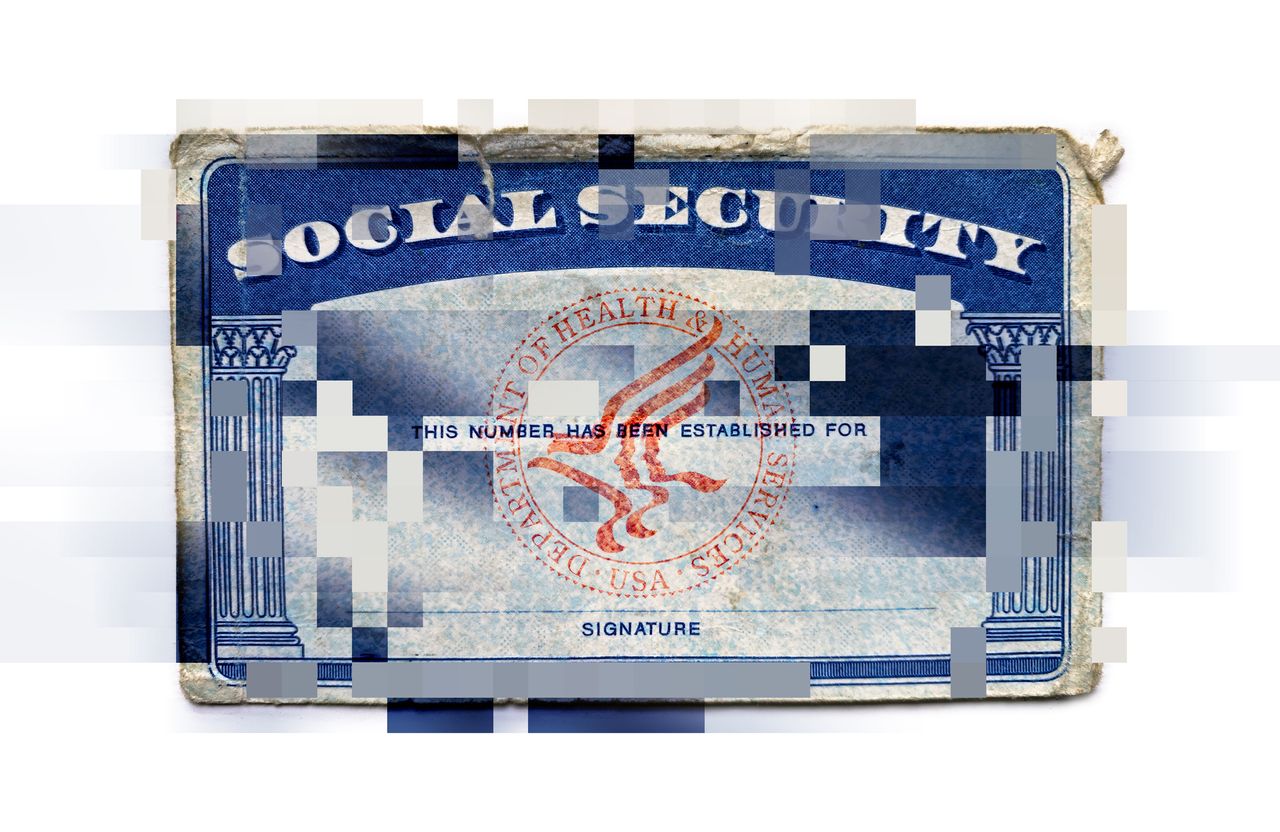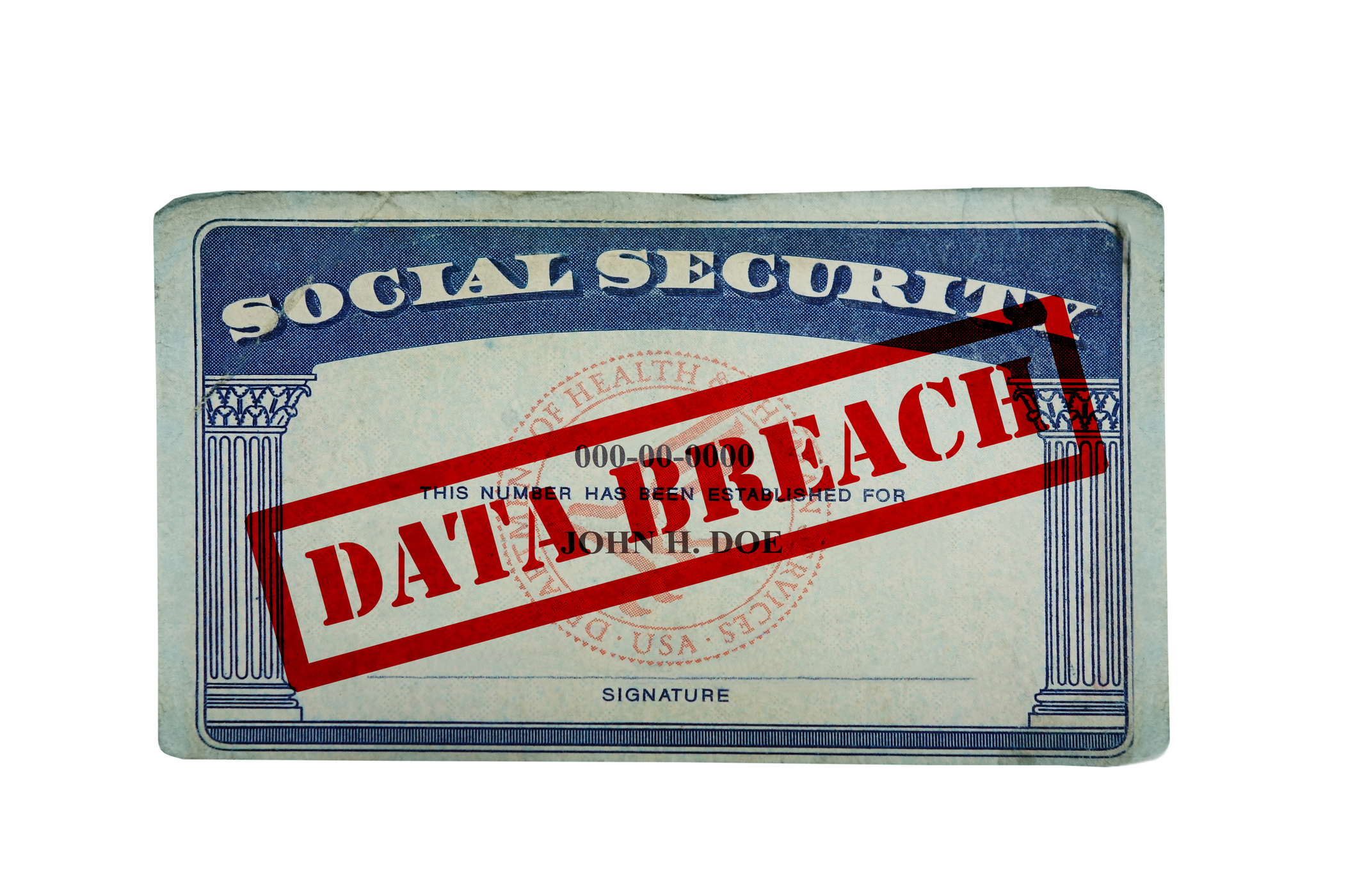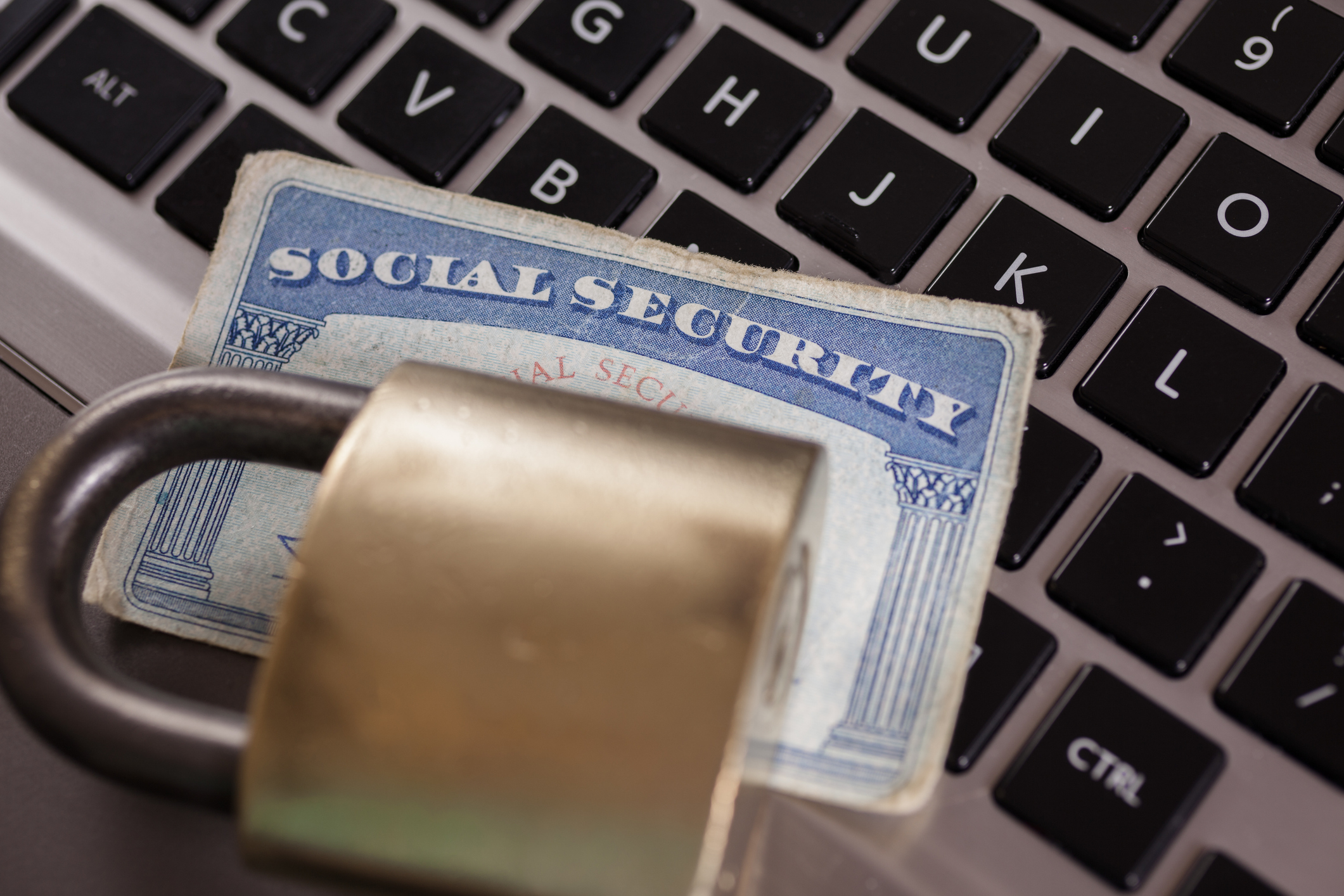
Times change, and the places where you should never give your Social Security number are not as obvious as they might have once been. Safeguarding your Social Security number is one of the best ways to prevent identity theft.
Not only should you never carry your Social Security card in your wallet or purse, but you should also rarely give out your Social Security number. The more you give out your Social Security number, the more at risk it is of falling into the wrong hands.
In fact, several of the riskiest places to give out your Social Security number might even surprise you.

Places where you should never give your Social Security number
Safeguarding your Social Security number is essential to protect yourself from identity theft, which can cause significant financial difficulties.
As per the Social Security Administration, "repetitive use and disclosure of SSNs in organizational record-keeping systems multiplies the susceptibility of persons to potential identity theft." For this reason, the Social Security Administration (SSA) is initiating a public information program to encourage the use of alternate identifiers instead of Social Security numbers.
According to the latest data from the Federal Trade Commission's 2024 Consumer Sentinel Network Data Book, approximately 22% of Americans (1 in 5) have experienced identity theft in their lifetime, with 1,135,270 identity theft complaints reported in 2024, a 9.5% increase from 2023.
Likewise, the Identity Theft Resource Center’s 2025 Annual Data Breach Report indicates that there were 3,222 data compromises in the U.S. in 2025, a record high, 4% higher than the 2023 peak of 3,202; It's a 79% increase from the 2021 high of 1,860
Below are 11 places where you should never give your Social Security number. If any of the following places ask for it, it's okay (and advised) to say no.
- Universities and colleges
- Banking and financial institutions
- Job applications
- Hospitals
- State governments
- Local government
- Federal government
- Medical businesses (Companies that concentrate on services and products for the medical field, such as distributors of diabetes or dialysis supplies, medical billing services, or pharmaceutical companies)
- Non-profit organizations
- Technology companies
- Health insurers and medical offices
Who does need your social security number?
Although one of the riskiest places to give out your Social Security number is in the banking industry, most of the time, there's no way around it. When opening a bank account or a credit card, you'll typically be required to share your SSN. However, you should still be aware of the potential dangers and practice caution when giving it out, even under these circumstances.
"You likely have to provide your Social Security number to your bank or employer, but be wary of providing it to anyone else," Ian Bednowitz, former general manager for Identity and Privacy at Gen Digital says, "For instance, if your dentist or doctor asks it on an intake form or when you are registering, don't automatically share it." This also applies to lawyers, financial advisors and crypto exchanges.
He recommends asking exactly why someone needs your SSN and whether they can use another way to verify your identity instead, like a driver's license number or your insurance card. If employers and government agencies do have a good reason to ask for it, verify how they will protect your information.
"It’s obvious there is no slam-dunk 100% way to protect yourself," Adam Levin, a consumer affairs advocate, tells us. "Everywhere you turn, you’re going to run into an organization looking for information from you."

How to stop your SSN from getting stolen
Bednowitz and Levin both share several ways you can prevent your SSN from falling into the wrong hands.
Don’t be so quick to give out your number:
Organizations and companies will often ask for your Social Security number, but that doesn’t mean they have to have it. You will be required to provide your Social Security number in any situation that requires your identity to be verified (such as an application for credit or a license) or about which the IRS must be notified.
In any other case, be sure to ask whether the agency, business or organization has to have it. Unfortunately, even though many groups — such as private insurers — can’t require your Social Security number, they might refuse to do business with you if you don’t provide it. In those cases, ask if you can give just the last four numbers rather than your full Social Security number.

Don’t ever give out your Social Security number or any other personal information to someone you don’t know who initiates contact with you by phone, email, or in person:
For example, if you receive an email that claims that you must provide personal information to claim a refund from the IRS, it’s a scam. The IRS doesn’t request information from taxpayers by e-mail.
"Avoid sharing your number with any organization unless you have initiated contact and are completely confident you are speaking to them," shares Bednowitz. "That means if anyone contacts you via phone, text, or email claiming to be from the IRS, DMV, or other government office or a doctor, dentist, financial advisor, etc., politely tell them you will call them back to provide it."
Lock away your Social Security card:
Your Social Security card belongs in a fireproof safe in your home, not in your wallet. Why? Because if someone stole your wallet, they’d be able to steal your identity, too. And don’t leave your card or any other personal information sitting out where others can see it. Levin says this is a big problem at universities, where students leave out wallets, credit card statements, and other items with personal information that can easily be stolen. Plus, it's important to shred any documents with your personal information once you no longer need them.

Protect your number from cyber thieves:
Even though there’s not much you can do to protect your personal information once you hand it over to another business or organization, you can take steps to protect the data on your computer. It can be helpful to install antivirus and Internet security software on your computer and update it frequently.
"Identity theft protection services can include features such as monitoring your credit reports, alerting you when new accounts are opened in your name, or when banks, credit card companies, or other financial services providers check your credit," says Bednowitz.
Levin also says you should frequently change passwords for your online accounts and not use the same passwords for financial accounts and social networks.
Control the damage:
Even if you take all these steps, there still is a chance that you will become a victim of identity theft. That’s why it’s imperative to check your accounts daily to catch any transactions you didn’t make. “If you have time to check e-mail and a social networking site, you can find time to check your bank and credit card accounts,” Levin says.
Take advantage of the free weekly credit report you're entitled to from each of the three credit bureaus — Experian, Equifax and TransUnion. Go to www.annualcreditreport.com to get your reports. Also consider freezing your credit. Freezing your accounts at the three major credit bureaus is the best way to prevent thieves from opening new credit accounts in your name. It's easy to do and it's a free service.
And if you notice any problems, act quickly to repair the damage. You can contact the credit bureaus and ask them to put a fraud alert or credit freeze on your accounts. A free fraud alert requires lenders to make some effort to verify your identity before issuing new credit in your name. A credit (or security) freeze prevents the credit reporting companies from releasing your report without your consent. The credit bureaus charge a fee to initiate a freeze, but you might not have to pay if you're a resident of a state that waives the fee for identity theft victims.
If your wallet (with your Social Security card or any credit cards inside it) is stolen, report it to the police. With a police report, you can place an extended fraud alert, which lasts seven years, on your credit report, and you'll have documentation that will help you bolster your case if you become a victim of identity theft.
See the Federal Trade Commission’s identity theft page for more information about what you can do if your identity has been stolen.







